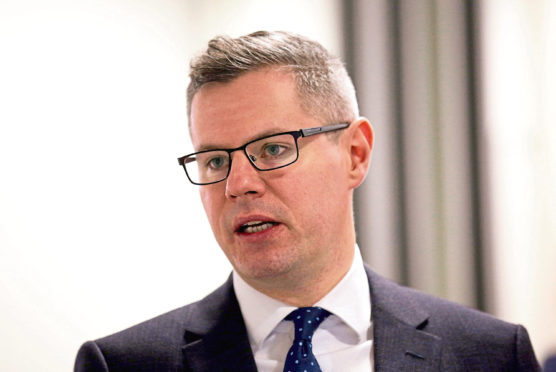Scotland’s budget will be cut by more than £200 million next year to compensate for an income tax take of almost £1 billion less than forecast.
HMRC figures published yesterday revealed the Scottish Government raised £941m less than expected in devolved income taxes in 2017/18.
According to the Treasury, the nation’s economy grew more slowly than the rest of the UK, hitting tax receipts and leaving the Scottish Government with a shortfall in funding.
The shortfall, however, will be offset by a £737m increase to the block grant funded by the UK Government meaning he Scottish Government will have to manage a reduction in funding in 2020/21 of £204 million.
In 2017 the Scottish Government increased higher income tax rates and brought in two additional bands following the devolution of income tax powers to Edinburgh.
The Scottish Conservatives claimed the £204m gap would mean cuts to public services or further tax increases.
Tory finance spokesman Murdo Fraser said: “This exposes the cost of having an under-performing SNP government which is overseeing sluggish growth and poor productivity.
“Thanks to that incompetence, public services may have to be slashed to the tune of £200m, or Scottish taxpayers will face even more raids on their pay packets.
“Fortunately, the benefits of being part of the UK mean that this underperformance by the SNP government can be compensated for by Westminster.”
Mr Fraser added: “Perhaps the SNP should acknowledge that and be thankful for the union, instead of trying to tear Scotland out of it.”
Finance Secretary Derek Mackay said his reserve and borrowing powers are “sufficient to manage” the impact but called for a rethink of restrictions on them.
Mr Mackay said he would manage the finances in a “responsible way” to support public services.
He said: “However, the volatility the current system places on Scotland’s spending means the fiscal framework review must consider the current limits on the use of the reserve and borrowing powers which are clearly not fit for purpose.”
Chief Secretary to the Treasury Liz Truss said: “With those new powers, Scottish ministers should take responsibility and focus on the decisions necessary to get Scotland’s economy growing faster to avoid shortfalls in tax receipts.”
The HMRC figures show the number of income tax payers in Scotland fell 0.6% to 2,513,000 between 2016/17 and 2017/18 while in the rest of the UK they rose 0.5%.
The amount of tax collected in Scotland rose 1.8% to £10,916 million in the same period, while the rest of the UK was up 3% to £154,199 million.
